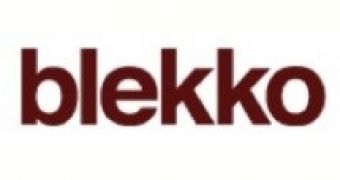Yandex, Russia's top search engine, has led an investment round in Blekko, the upstart search engine that aims to bring curated results with some help from users and experts.
Yandex, joined by other new and existing investors, will pour $30 million, 22 million Euro, into the small search engine. Arkady Volozh, founder of Yandex and CEO will join Blekko's board of directors.
"Blekko's top tier technology and fresh product approach has enabled it to sustain growth since it launched, something no other U.S. search start up has been able to accomplish in more than a decade," Arkady Volozh said.
"We love blekko and think it’s a great product – a quality search engine that organically combines search algorithms with expert opinions. We believe the outlook for this approach is strong and that the blekko team is poised to make it a success," he continued.
Yandex was joined by Australia's, MLC Private Equity, and existing investors Venture Partners, CMEA Capital and PivotNorth Capital.
Blekko has only been around for a year, but it's already gotten plenty of attention is one of the few, albeit small, new search engines that can compete with the big guys, Google and Bing.
The startup has raised $55 million, 40 million Euro, to date, including the latest round.
"Yandex is a partner and investor that shares our mission of making search the best experience it can be," Rich Skrenta, CEO of blekko, said.
"Having access to one of the world’s top pools of search talent and the fantastic products they have built will help us grow blekko in the U.S.," he added.
Yandex will do more than provide funding for the company, it will also provide some infrastructure support to help the fledgling search engine. This should help with the quality of tail end results, where Blekko says it fares worse.
Yandex is the most popular search engine in most Russian-speaking markets and has recently opened up offices in Turkey, where it launched its first search engine outside of its core market.

 14 DAY TRIAL //
14 DAY TRIAL //